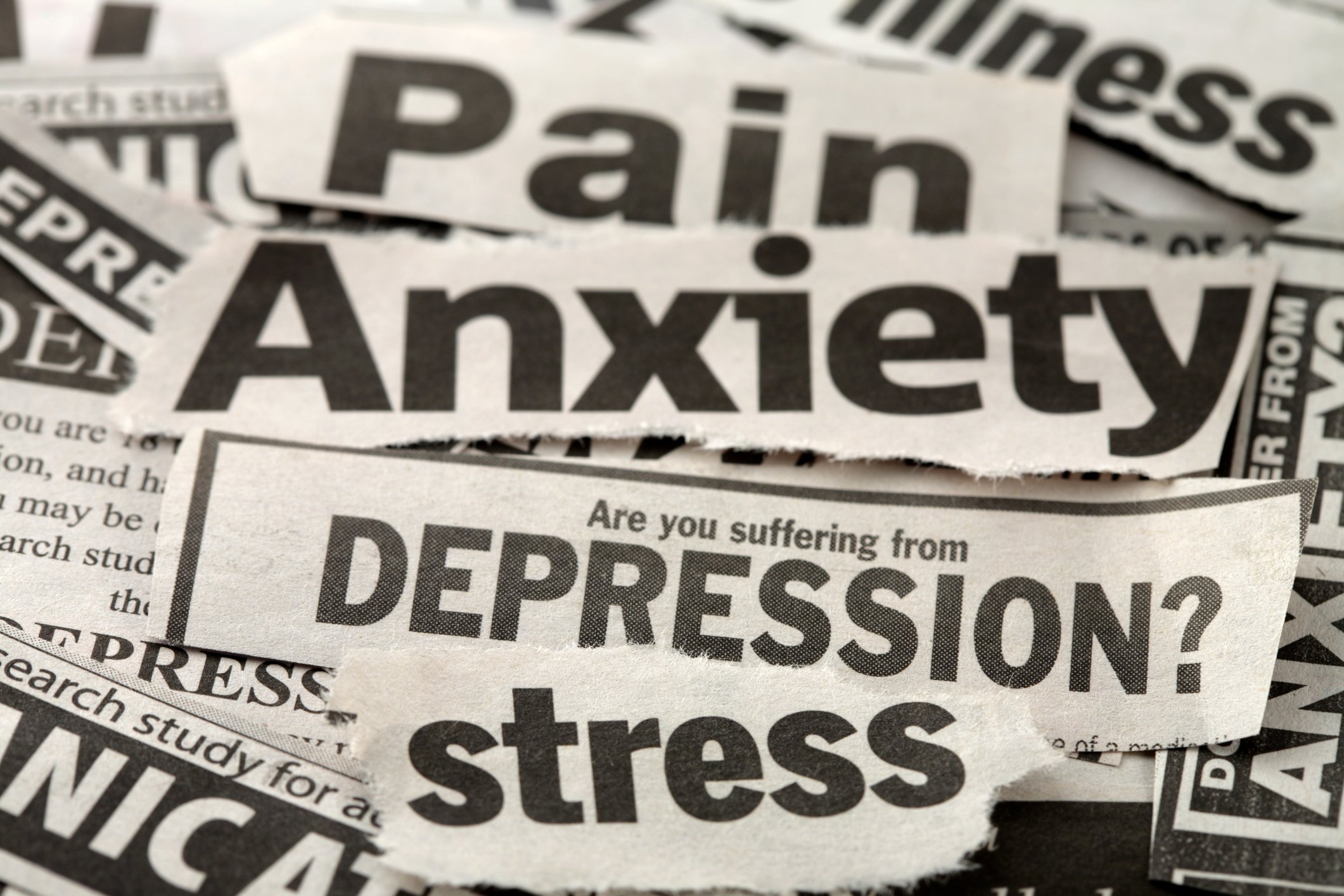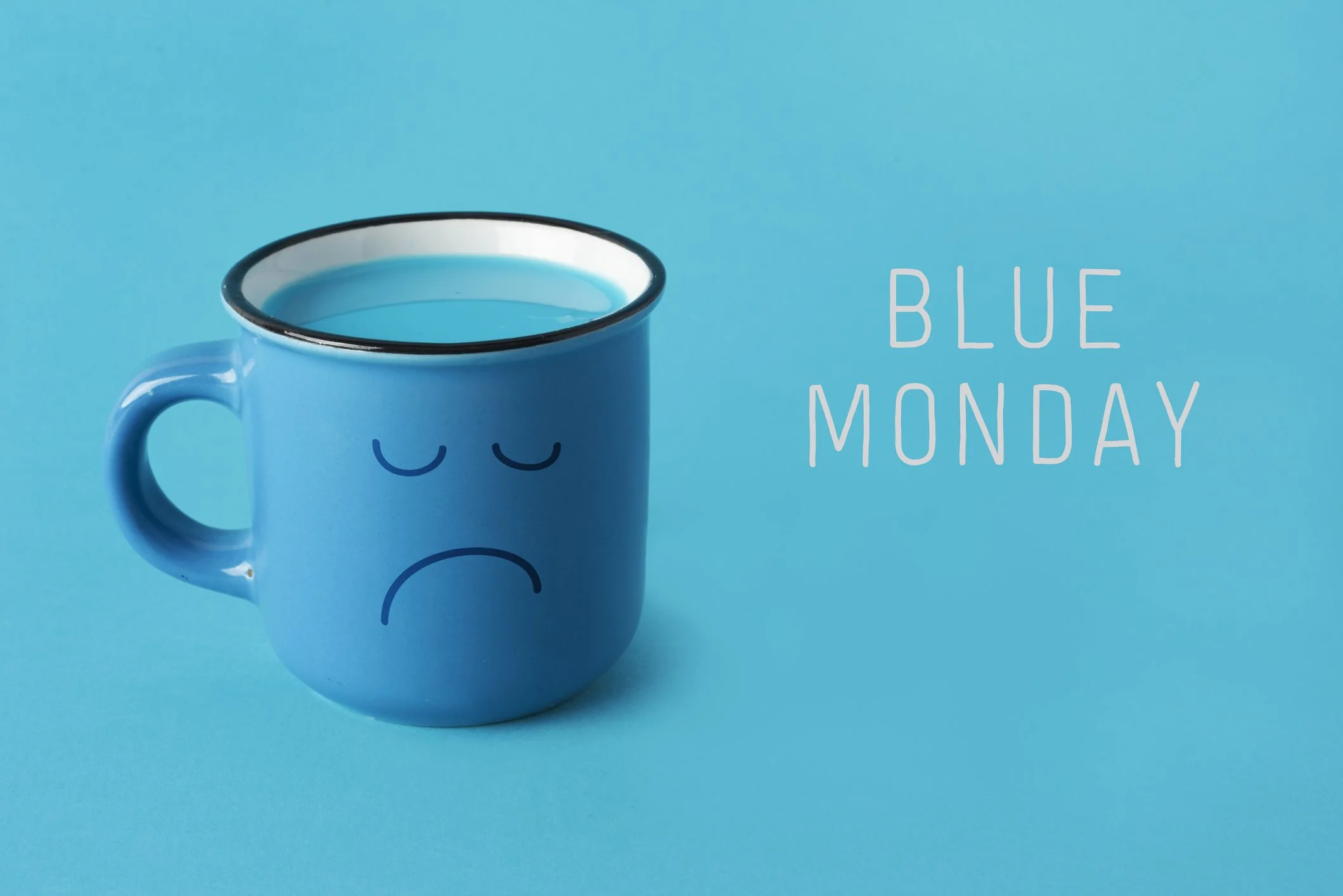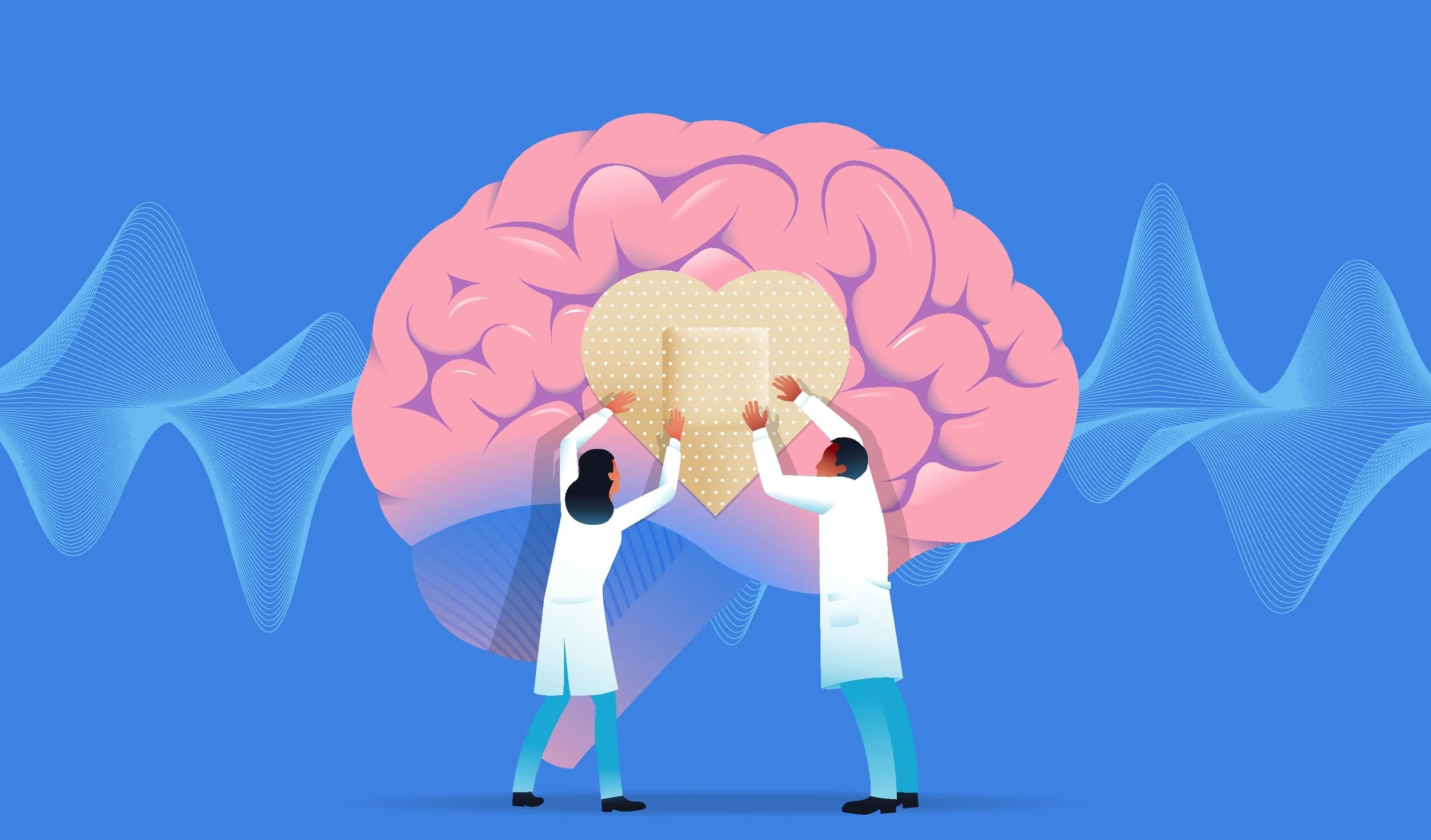
Alleviant Integrated Mental Health Blog
Supporting Black Mental Health: Voices, Visibility, and Healing
Mental health is a fundamental part of wellbeing. For many in the Black community, emotional distress has been misunderstood, minimized, or left without effective support. Supporting Black mental health means listening deeply, honoring lived experience, and expanding access to culturally responsive healing rooted in respect, science, and community strengths. Healing is a human right and essential to overall health.
Mental Health in America: Understanding the Decline
For the first time in over two decades, fewer than 30% of Americans describe their mental health as "excellent." This isn't just a statistic, it represents millions of people struggling with their emotional wellbeing. Just six years ago, before the COVID-19 pandemic, 43% of us felt confident about our mental health.¹ Today, that number has fallen to 29%.¹
When Food and Mood Collide: Understanding Emotional Eating, Eating Disorders, and New Year Diet Culture
January often arrives with bright promises: resolutions to eat healthier, exercise more, or “start fresh” after the indulgences of the holidays. For many people, this focus on diet and self-discipline can be stressful, triggering, or even harmful, especially for those who struggle with emotional eating, disordered eating, or body-image concerns.
If you find that food has been a source of comfort, conflict, or anxiety, you are not alone. Understanding how mood and food interact, and approaching nutrition with self-compassion, can make a meaningful difference in your mental health and overall well-being.
When Willpower Isn’t Enough: Understanding the Mental Health Side of Lifestyle Changes
Every January, many of us set intentions to improve our physical health. We resolve to exercise more, eat healthier, lose weight, or quit substances. But even the most well-intentioned plans can feel emotionally exhausting, and progress often stalls. That doesn’t mean you lack discipline. More often, it means that the emotional and mental aspects of change are being overlooked.
How to Support a Loved One Who Is Struggling Right Now
January can be a difficult month for many people. The holidays are over, winter is in full swing, and the start of a new year can bring pressure, exhaustion, or feelings of isolation. For some, these factors can trigger or worsen depression symptoms, leaving them quietly struggling. If someone you care about seems “off,” you may be unsure how to help. Knowing what to look for and how to respond can make a meaningful difference.
Why Blue Monday Is Not the End of Hope and How to Lift Your Mood
Every January, the third Monday of the month is often labeled as “Blue Monday.” It has a reputation for being the saddest day of the year, mostly because of winter weather, post holiday fatigue, financial stress, and the slow return to routine. While the idea itself is more myth than science, the feelings behind it are very real. Many people notice their mood dipping in mid January, and that experience deserves care, not dismissal.
If this day feels heavy for you, it does not mean you are failing or that the rest of the season will be hard. It simply means your mind and body are responding to stress, darkness, or a shift in routine. There are gentle ways to support yourself and small steps that can make this time feel lighter.
What Your Nervous System Needs This Winter: A Guide to Regulation
Winter can feel heavier than other seasons. Shorter days, colder temperatures, and the residual stress of the holidays can leave your mind and body feeling off balance. What many people don’t realize is that these feelings are often rooted in your nervous system. How your body responds to stress, cold, and social pressures directly affects your mood, energy, and overall mental health. Understanding and supporting your nervous system can make winter feel less overwhelming and more manageable.
Beating the Post Holiday Blues: Why You Might Feel Down and How to Recover
The holiday season often brings a mix of joy, connection, and busyness. Once it all ends, many people notice an unexpected shift. The quiet days of January can feel heavier, slower, or strangely empty. If you find yourself feeling low after the holidays, you are not alone. This experience is very common and completely valid.
The post holiday blues are not a sign that something is wrong with you. They are your mind and body reacting to a major change in pace, structure, and emotional energy. With patience and simple routines, you can regain stability and feel more like yourself again.
Staying Active in Winter: Movement Ideas for Mental and Physical Health
Winter can be a beautiful time of year, but shorter days, colder temperatures, and busy holiday schedules can make it tempting to stay inside and slow down. While cozy evenings by the fire are appealing, maintaining regular movement during the winter months is important for both mental and physical health. Physical activity helps reduce stress, improve mood, boost energy, and support overall well-being—even when the weather is chilly or daylight is limited.
Boosting Your Immune System Through Mental Health Care
As the holiday season approaches and the winter months settle in, many of us focus on protecting our physical health. We wash our hands more often, take vitamins, and bundle up against the cold. What is often overlooked, however, is how much mental health care can influence the strength of our immune system. Stress, worry, and emotional strain do more than weigh on the mind. They affect the body in ways that can make us more vulnerable to illness. Taking care of your mental health is not just about feeling better emotionally. It is also an important way to keep your body resilient.
Holiday Parties and Social Anxiety: How to Show Up and Take Care of Yourself
The holidays often come with invitations, gatherings, and celebrations. For many, these moments are joyful. But for some, social events can trigger anxiety. The pressure to be cheerful, make small talk, or navigate crowded rooms can feel overwhelming.
If the idea of a holiday party makes your chest tighten or your thoughts race, you are not alone. Social anxiety is common, and there are ways to show up that honor both your boundaries and your well-being.
You Don’t Have to Be Thankful for Everything: Gratitude and Grief Can Coexist
Thanksgiving is supposed to be about gratitude, family, and celebration. But for many people, it can also bring up sadness, loneliness, or grief. You might be missing a loved one, navigating difficult family dynamics, or struggling with depression or anxiety. It’s normal to feel that way.
Feeling grief does not mean you are ungrateful. In fact, gratitude and grief can exist together. You can acknowledge your pain and still notice moments of light and comfort.
When Family Drama Feels Like Too Much: Emotional Boundaries for Your Mental Health
Family gatherings are supposed to be warm and joyful, but sometimes they bring stress, tension, or old conflicts to the surface. During the holidays, these situations can feel overwhelming, especially when emotions run high. Setting emotional boundaries is one of the most important ways to protect your mental health and enjoy the season.
Boundaries are not about being rude or distancing yourself from loved ones. They are about recognizing your limits, taking care of yourself, and showing up in ways that feel safe and healthy.
The Role of Peer Support in Veteran Mental Health Recovery
For many veterans, the transition from military life to civilian life can feel isolating. Even during the holidays, when everyone else seems to be celebrating, veterans may feel disconnected from friends, family, or their communities. Peer support can be a powerful tool to bridge that gap, helping veterans feel seen, understood, and supported.
Peer support isn’t therapy in the traditional sense, but it is a form of connection that can make recovery from depression, anxiety, trauma, or PTSD feel less lonely. It works because it comes from people who have shared similar experiences and understand what it’s like to serve.
Finding Mental Health Support Beyond the VA: Why More Veterans Are Turning to Alleviant
If you’re a veteran, you’ve likely heard it before: “Call the VA.” The VA provides essential services for millions of veterans, but it isn’t the only option for high-quality mental health care. Many veterans and their families don’t realize there are community clinics, private providers, and nonprofit programs designed specifically to help veterans access care faster and with fewer barriers, especially during the holidays when symptoms of depression, anxiety, or PTSD often intensify. The good news is that help is available, and you don’t have to navigate it alone.
At Alleviant, we specialize in helping veterans access compassionate, evidence-based care quickly. We see most patients within 7 days of referral, so you can begin feeling supported right away, not weeks or months later.
Gratitude Is Good for Your Brain: How to Practice It When You’re Struggling
When life feels heavy, being told to “just be grateful” can sound frustrating or even impossible. Gratitude isn’t about ignoring pain or pretending everything is fine. It’s about gently noticing moments of goodness, even when things are hard. And science shows that doing so can actually help your brain heal and rebalance.
From Coping to Connection: What Kids Really Need Instead of Substances
Kids and teens often turn to substances as a way to cope with stress, anxiety, or feelings of isolation. While adults may see this behavior as rebellion or experimentation, the underlying need is usually something deeper: connection and support.
At Alleviant Integrated Mental Health, we focus on helping children, teens, and families meet these needs in healthy ways that reduce the risk of substance use.
Substance Use and Self-Medication: Understanding What Teens Are Trying to Escape
Teen substance use is often more than a phase or a rebellion—it can be a way for young people to cope with stress, emotional pain, or mental health challenges. Understanding the reasons behind self-medication is critical for parents, educators, and caregivers who want to provide support rather than judgment.
At Alleviant Integrated Mental Health, we emphasize addressing the underlying mental health needs that can lead to risky behaviors.
Why Middle School Is a Critical Time
Between the ages of 11 and 14, children experience significant emotional, social, and cognitive development. This period is often when anxiety, depression, ADHD, and other mental health concerns first appear. Early identification can help prevent struggles from worsening and supports academic, social, and emotional growth.
Substance Use Prevention Starts With Mental Health
Red Ribbon Week is a time to raise awareness about substance use prevention and encourage healthy choices for all ages. While education about drugs and alcohol is important, one of the most effective ways to prevent substance misuse starts with mental health.
At Alleviant Integrated Mental Health, we know that emotional well-being, coping skills, and early support are key to reducing the risk of substance use.




















